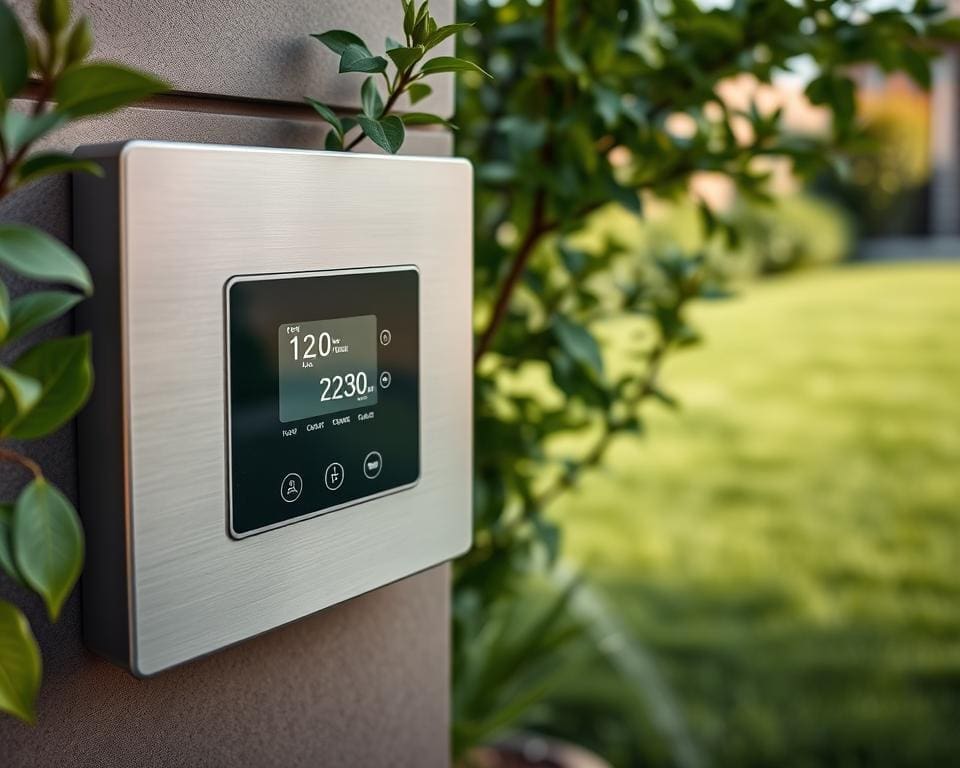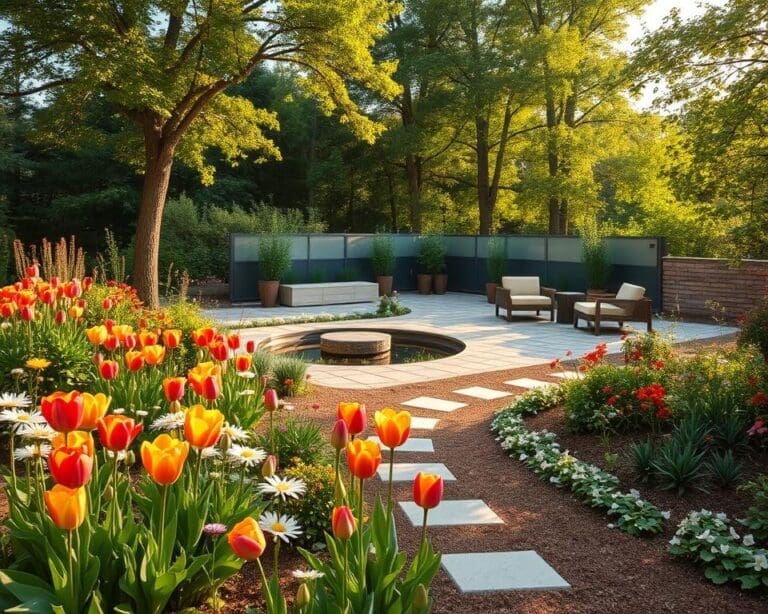In an era where sustainability is paramount, smart sprinkler systems emerge as a pivotal solution in efficient lawn watering and water conservation technology. These advanced irrigation systems are designed to intelligently assess their environment, utilising sensors and data to optimise water usage. As climate change and water scarcity challenge traditional gardening practices, smart sprinkler systems not only reduce water wastage but also enrich the health of our gardens. This shift towards more sustainable living is essential, reaffirming our commitment to nurturing both our plants and the planet.
The Evolution of Smart Irrigation Systems
The journey of smart irrigation systems has witnessed remarkable advancements, transforming traditional watering approaches into efficient, technology-driven solutions. These innovations in smart home irrigation solutions make it easier for homeowners to maintain healthy gardens while conserving water.
Understanding Smart Home Irrigation Solutions
Smart home irrigation solutions integrate various modern technologies to optimise watering practices. Users now benefit from:
- Wi-Fi connectivity allowing remote control and monitoring.
- Mobile applications that provide real-time data and scheduling options.
- Weather forecasting features that adjust watering schedules based on precipitation and climatic conditions.
Key Features of Modern Sprinkler Systems
Modern sprinkler systems are equipped with advanced functionalities that cater to specific garden requirements. Key features include:
- Automated scheduling that ensures water is distributed efficiently, saving time and effort.
- Moisture sensors that detect soil moisture levels to prevent overwatering.
- Zone control that allows for tailored watering based on different plant needs.

How does a smart sprinkler system save water?
Smart sprinkler systems take an innovative approach to efficient water usage. By incorporating advanced technology, these systems facilitate sustainable gardening practices, proving highly effective in minimising water consumption.
Data-Driven Water Management
Utilising data-driven water management transforms gardening into a precise science. Systems monitor soil moisture levels continuously, collecting real-time data that informs the amount of water delivered. This targeted approach significantly reduces water wastage, ensuring gardens receive exactly what they need. Smart systems assess individual plant requirements, adapting to varying moisture levels within different areas, leading to optimal efficiency.
Weather-Based Adjustments and Forecast Integration
Integrating weather forecasts into sprinkler systems enhances their operational efficiency. By analysing local weather data, these systems adjust watering schedules based on expected rainfall. This proactive adjustment reduces the likelihood of overwatering, safeguarding both plants and water resources. The synergy of water-saving smart technology and accurate weather forecasts allows gardeners to maintain lush lawns and vibrant gardens while conserving precious water supplies.
The Benefits of Efficient Lawn Watering
Efficient lawn watering offers a multitude of advantages that extend beyond mere aesthetics. By adopting methods designed for effective irrigation, homeowners and gardeners can nurture their green spaces while embracing sustainability. Understanding the benefits of efficient lawn watering can lead to improved overall garden health and resource conservation.
Maximising Plant Health
Implementing efficient watering techniques plays a crucial role in maximising plant health. Consistent and well-timed hydration encourages robust growth and strengthens plants against disease. Appropriate watering ensures that each plant receives the right amount of moisture, customised to their specific needs. Healthy plants flourish, showcasing vibrant foliage and rich blooms, which contribute to the overall beauty of the garden.
Reducing Water Runoff and Waste
Another significant advantage lies in reducing water runoff and waste. Overwatering often leads to nutrient leaching and soil erosion, harming both plants and the environment. Smart sprinkler systems enhance water management by delivering precise amounts as needed, preventing excess water from escaping into drainage systems. Consequently, not only is water use optimised, but the garden remains healthy and thriving.
Eco-Friendly Sprinkler Systems and Sustainability
Adopting eco-friendly sprinkler systems is essential in the pursuit of sustainability. These innovative irrigation solutions significantly contribute to carbon footprint reduction by optimising water usage and minimising waste. As we navigate the challenges of climate change and environmental degradation, the shift towards responsible water management becomes more critical.
Reducing Your Carbon Footprint
Traditional watering methods often waste enormous amounts of water, energy, and resources. Eco-friendly sprinkler systems leverage cutting-edge technology to ensure that every drop counts. Such systems adapt to real-time data, adjusting watering schedules based on current weather conditions and soil moisture levels. This process reduces unnecessary irrigation and promotes sustainability in landscape maintenance.
Supporting Local Ecosystems
Integrating eco-friendly sprinkler systems encourages the preservation of local ecosystems. These systems can be tailored to meet the specific needs of native plants, enhancing biodiversity in gardens and public green spaces. By fostering habitats that support local wildlife, these systems contribute to a balanced ecosystem. The synergy created between advanced irrigation technology and nature exemplifies a responsible approach to environmental stewardship.
Automated Sprinkler Control and Convenience
The rise of automated sprinkler control has brought significant strides in garden maintenance, allowing homeowners to streamline their watering practices. This technology introduces a level of convenience that transforms how gardens are cared for, making it easier to maintain lush greenery without the burden of manual operation.
Remote Monitoring and Management
With the advent of remote monitoring systems, gardeners can manage their sprinklers effortlessly through smartphone applications. These systems enable users to keep an eye on their irrigation setups from any location, ensuring that watering can continue even when they are away. This flexibility not only saves time but also contributes to efficient water use, as settings can be adjusted quickly based on immediate needs.
Customised Watering Schedules
One of the key benefits of automated sprinkler control lies in the ability to create customised watering schedules tailored to specific plant types and individual garden conditions. Such personalised approaches ensure that each area receives the right amount of water at the right time, promoting optimal growth and reducing the chances of water wastage. This targeted irrigation strategy is essential for maintaining the health of both the garden and the surrounding environment.
Integrating Water-Saving Smart Technology in Your Garden
Embracing water-saving smart technology can transform your gardening experience, making it more efficient and sustainable. Effective integration starts with understanding your garden’s unique needs and the appropriate tools available. Choosing the right system requires a careful evaluation of your garden’s size, the types of plants, and the local climate. Such considerations will help ensure optimal results while promoting water conservation.
Choosing the Right System for Your Needs
Several factors play a crucial role in choosing the right system for your garden. Start by assessing:
- The size of your garden and the variety of plants you cultivate.
- Your typical local weather and potential seasonal variations.
- The existing irrigation methods and their effectiveness.
Taking these elements into account helps streamline the process of integrating water-saving technology into your garden, enhancing both efficiency and sustainability.
Real-world Examples of Water Conservation Technology
Numerous water conservation examples demonstrate the success of smart technologies in gardening. Drip irrigation systems, for instance, deliver water directly to the root zones of plants, minimising waste. Rain sensors automatically adjust watering schedules based on current weather conditions, ensuring that plants receive water only when necessary. These innovations highlight the practical application of smart solutions, leading to a greener and more efficient gardening approach.
The Future of Smart Irrigation Solutions
As we look ahead, the future of smart irrigation solutions is poised to be transformed by exciting advancements in irrigation technology. With the emergence of artificial intelligence and machine learning, systems will not only optimise water usage but also predict the specific needs of plant life with unparalleled accuracy. This evolution is set to make smart irrigation systems not just tools for efficiency, but vital partners in sustainable gardening practices.
The integration of groundbreaking technologies will likely enhance the adaptability of irrigation systems, allowing them to respond more dynamically to environmental changes. By seamlessly incorporating weather forecasts and soil moisture data, these systems will conserve more water than ever before, aligning with broader ecological goals. As awareness of water scarcity increases, innovative solutions will provide gardeners and landscapers the tools to contribute meaningfully to water conservation efforts.
Ultimately, the trajectory of smart irrigation solutions points towards a future where efficiency and sustainability will take centre stage. Embracing these advancements will empower gardeners to not only achieve lush landscapes but also fulfil their role as stewards of the environment. With each new technological leap, we inch closer to a world where water conservation is seamlessly integrated into our everyday lives, shaping a greener future for generations to come.









